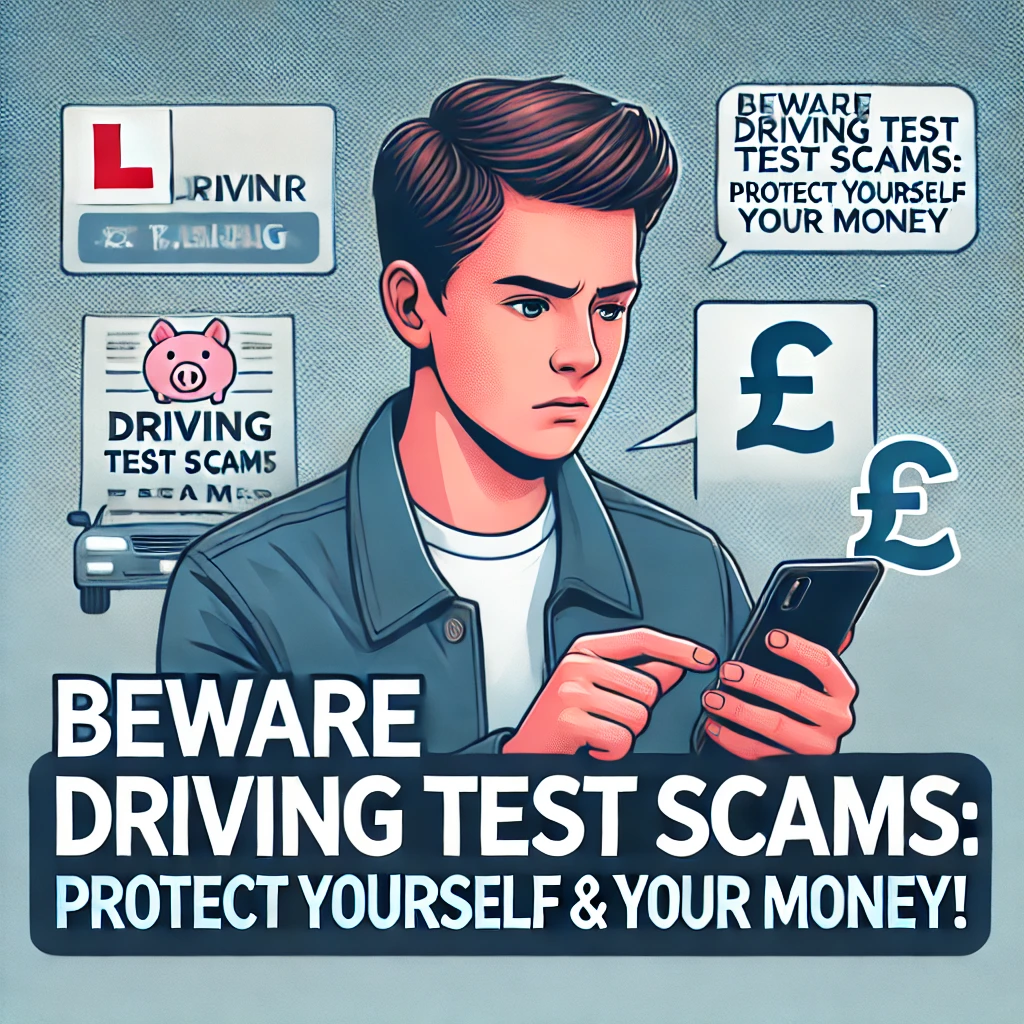Learning to drive in the UK is not only a significant milestone but often a costly journey. Recently, however, there’s an alarming surge in scams targeting learner drivers. Lloyds Bank has reported a staggering 92% increase in driving lesson and test scams over the last six months alone, with victims losing an average of £244 (This is Money).
Why are driving test scams increasing?
The primary reason behind this spike is the significant backlog of driving tests caused by the COVID-19 pandemic. Frustrated by lengthy waiting times, desperate learner drivers are turning to online alternatives offering quicker test dates, making them easy targets for fraudsters.
Fraudsters often use automated bots to book available driving test slots and resell these slots at inflated prices, exploiting learners’ desperation to secure early appointments. These scams are becoming increasingly sophisticated and convincing, making them harder to spot.
Common Scamming Techniques to Watch Out For
To protect yourself, it’s crucial to recognize the most frequent methods scammers use:
- Fake Driving Schools: Fraudsters create convincing websites and social media pages pretending to offer driving lessons at discounted rates. Victims often pay upfront only to discover later the instructor or school doesn’t exist (The Times).
- Fake Test Slots: Bots reserve test appointments, reselling them at higher prices. These unofficial services often vanish after receiving payment, leaving learners without a booking.
- Social Media Fraud: Scammers frequently advertise enticing deals for lessons or quick test bookings on platforms like Facebook and WhatsApp. Payments made to these individuals usually result in lost money with no services provided.
How to Avoid Becoming a Victim
Stay vigilant and take these proactive measures to safeguard your finances:
1. Book Directly with DVSA
Only use the official DVSA website to book your driving test. Avoid third-party booking services that promise early tests for extra fees.
2. Verify Your Instructor’s Credentials
Ensure your driving instructor is an Approved Driving Instructor (ADI). You can confirm their status through the official DVSA register.
3. Avoid Paying Upfront
Be wary of requests for full upfront payments, especially from unknown driving schools or instructors. Always pay per lesson or in smaller installments to minimize risks.
3. Beware of ‘Too Good to Be True’ Offers
Extremely discounted lesson packages often indicate fraudulent activity. Check reviews and ask for recommendations from friends or reputable sources.
Protecting Yourself Further
If you’ve been a victim or suspect fraudulent activity:
- Report immediately to your bank and the DVSA.
- Use secure payment methods to enable easier refund requests if needed.
- Keep records of all communications and transactions to aid any potential investigations.
Final Thoughts
As scams targeting learner drivers escalate, staying informed and vigilant is crucial. By understanding the tactics fraudsters use and taking proactive steps, you can avoid falling victim to these costly scams.
Subscribe to Money Savvy UK for regular updates and money-saving tips to keep your finances secure and healthy.



